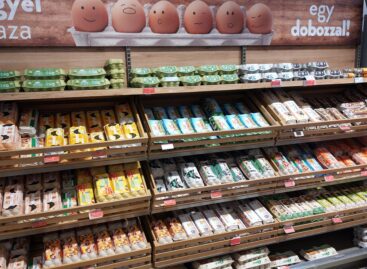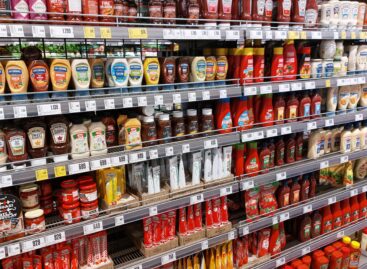Milk, honey and eggs: Drastic price increases and challenges for domestic producers
Milk, honey and eggs, which are among the basic foodstuffs of Hungarian households, have faced significant price increases in recent years. Both producers and consumers are in a difficult situation, while the domestic food sector is facing many challenges, including rising production costs and export-import imbalances, the outlook of the Agrárszektor points out.

The situation of Hungarian beekeepers has been particularly difficult in recent years. Honey production was fluctuating: while 18,000 tons of honey were produced in 2019, this number increased to 25,000 tons in 2022, but decreased again to 20,000 tons last year. Over the years, an average crop yield of 30,000 tons was typical, but due to the drop in demand and depressed purchase prices, producers are finding it increasingly difficult to sell their products. Two-thirds of domestic honey production is exported to Western Europe, where producers also have to face depressed prices. Flower honey, which is often available at discount prices in stores, further worsens the competitive situation of primary producers.
European Union egg imports fell by 20% in the first months of 2024, while exports increased by the same amount. In Hungary, egg imports fell by 8%, while egg exports rose by 25%. However, domestic egg production has also fallen: in 2019, 2.58 billion eggs were produced, this number has decreased to 2.33 billion by 2023. Due to the continuous increase in production costs, egg producers are also advocating a price increase in order to make production sustainable.
In Hungary, the annual milk consumption per capita is 182 kilograms, which is significantly higher than the world average. Domestic milk production was more than 2 million tons in 2022, and the annual milk yield per animal is 6,300 kilograms, making Hungary 16th in the world. However, the dairy sector has gone through a serious crisis in recent years: the drastic increase in energy prices, packaging and transport costs, as well as the increase in the price of raw milk, have seriously affected milk processors. In addition, the export-import ratio in the sector is also unfavorable, since a significant amount of raw milk is sent abroad and then returns to the country in a processed form.
Related news
From caged eggs to alternative production
🎧 Hallgasd a cikket: Lejátszás Szünet Folytatás Leállítás Nyelv: Auto…
Read more >Imported eggs to the EU are booming: Ukraine and the United Kingdom account for the majority
🎧 Hallgasd a cikket: Lejátszás Szünet Folytatás Leállítás Nyelv: Auto…
Read more >Price reduction: Milk under 200 HUF at PENNY
🎧 Hallgasd a cikket: Lejátszás Szünet Folytatás Leállítás Nyelv: Auto…
Read more >Related news
A colourful selection of sauces on the Easter table
🎧 Hallgasd a cikket: Lejátszás Szünet Folytatás Leállítás Nyelv: Auto…
Read more >Forced paths: trends and decisions in 2026
🎧 Hallgasd a cikket: Lejátszás Szünet Folytatás Leállítás Nyelv: Auto…
Read more >








